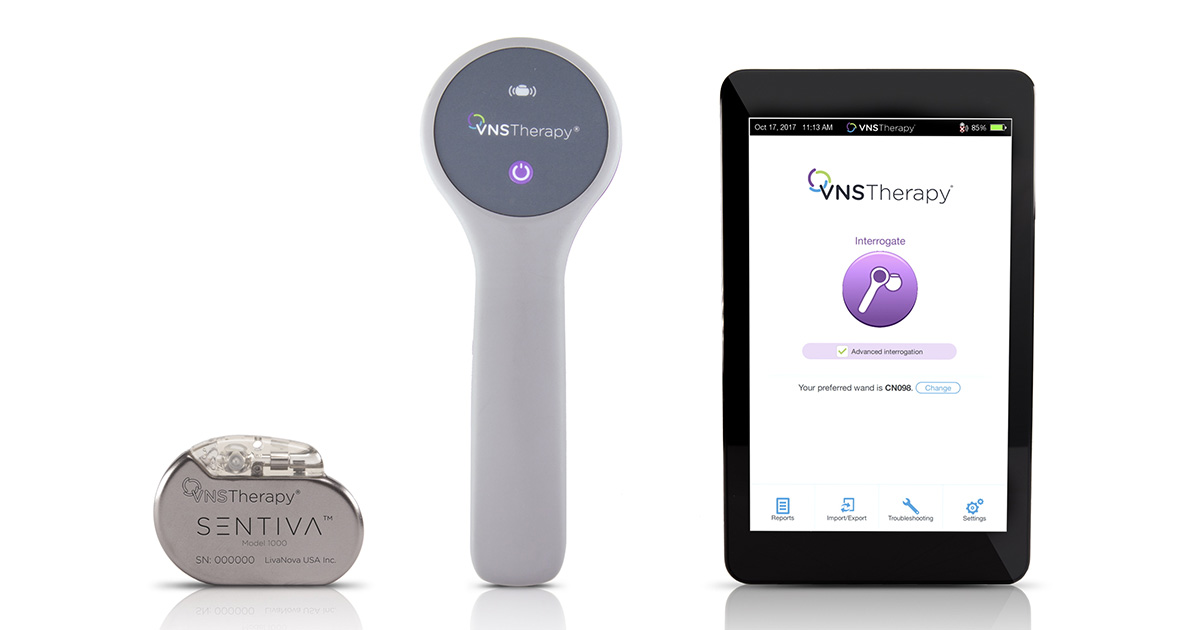New VNS Therapy Device Receives FDA Approval

Epilepsy News From: Tuesday, October 10, 2017
The latest Vagus Nerve Stimulation (VNS) Therapy® system, which consists of a novel implantable generator (SenTivaTM) and the next-generation VNS Therapy Programming System, was approved by U.S. Food and Drug Administration (FDA) on October 9, 2017, for the treatment of epilepsy.
Importantly, SenTivaTM is a closed-loop stimulator – it responds to heart rate increases typical of many seizure types. In addition to heart rate variations, it also collects and logs such events as body position, which may be associated with seizures.
New Features in SenTivaTM
New system features include
- A wireless wand
- A new user-friendly programming interface on a tablet
- Instead of specifying time-on and time-off durations, the new software allows choosing a duty cycle as a percentage from a drop-down list. The system will automatically program corresponding durations.
- The program has the ability to have separate day and night schedules for individuals who have diurnal (daily) fluctuations of seizure activity.
- The program also allows the treating physician to schedule gradual increases in the current delivered through the device. This reduces the need for repeat visits to the office for changes to the device program.
- A compact size making it easier to use in children who have epilepsy
Learn More
- Learn more about VNS
- Learn about other devices used in the treatment of epilepsy
Explore Treatment Options
If your seizures are difficult to control, meaning you continue to have seizures after one year or after two anti-seizure medications have been tried, we recommend seeking more specialized care.
Epilepsy centers provide a team approach to caring for people with seizures and epilepsy. Testing is available to diagnose whether a person has seizures and the type of epilepsy they may have. Epilepsy experts can help explore all treatment options, including new or add-on seizure medications, surgery, devices, dietary therapy, or a clinical trial.
Authored by
Mohamad Koubeissi MD
Reviewed Date
Tuesday, October 10, 2017
